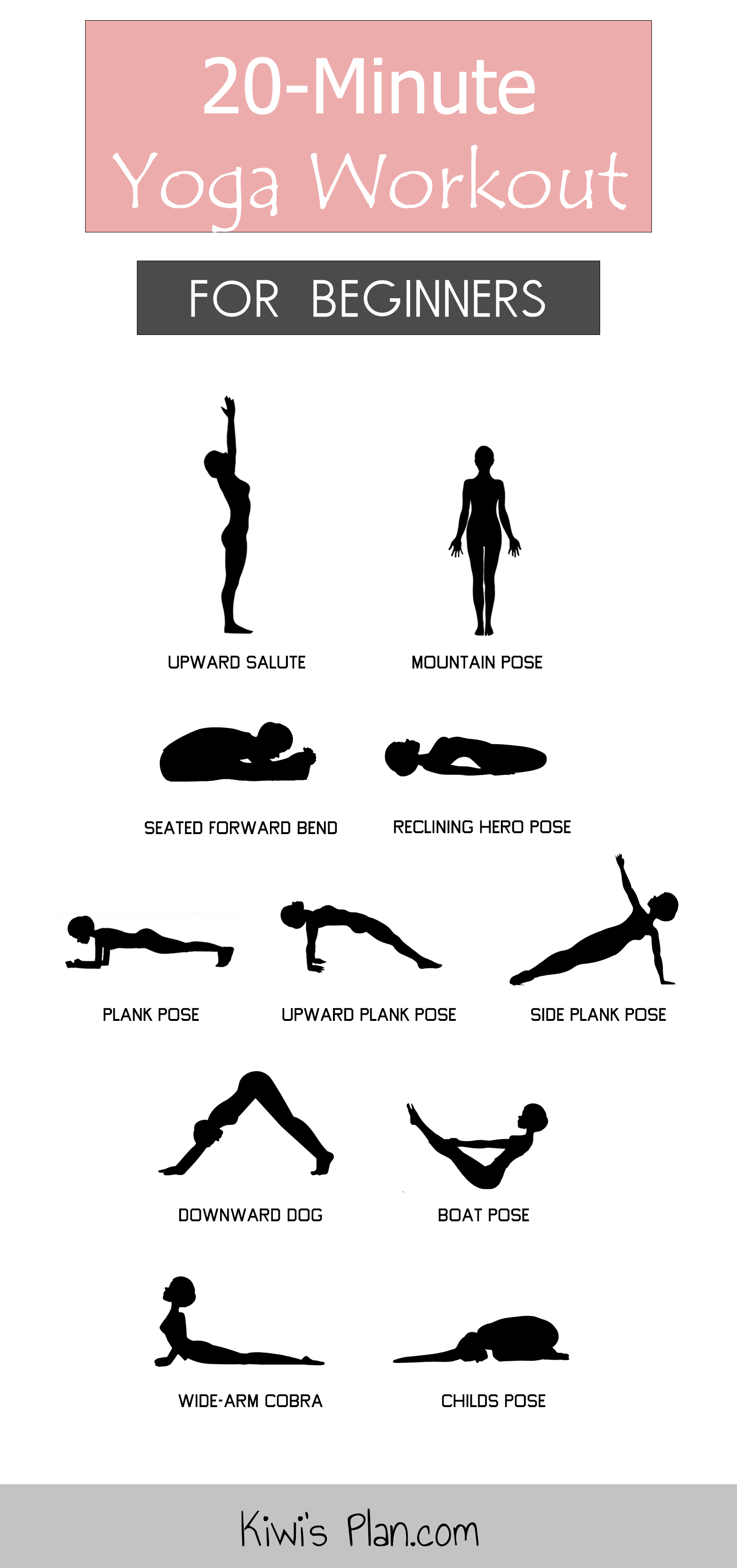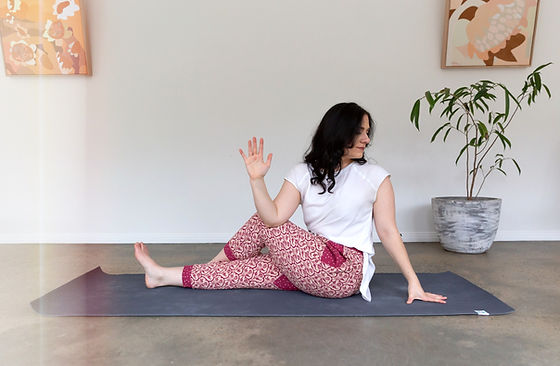
As you read this article, you've probably heard of a lot of benefits about yoga. These benefits include lower stress levels, improved cardiovascular health and reduced muscle tension. Read on to discover what else yoga can offer you. Once you discover how yoga can help improve your health, you'll be glad that you did. These are just a few of the many reasons you should get into yoga. Listed below are just some of the many benefits that yoga can give you.
Reduces stress
Research shows that yoga practice decreases stress. This type of exercise is designed to stimulate the parasympathetic nervous system, which helps manage stress by reducing chronic daytime levels of stress hormones. Regular yoga practice also increases heart rate variability, a measure of how well we can tolerate stress. A few yoga sessions can lead to a reduction in stress levels. Yoga can also improve mental flexibility and help people switch between tasks better.

Improves mood
While yoga's benefits may not be obvious at first, the body can reap the many health benefits that regular practice brings. Yoga can help improve your mood and muscle tone. Yoga has been shown to increase GABA levels. GABA is a neurotransmitter that can help curb anxiety and relieve blue moods. What does yoga do to improve your mood and well-being? Here are some of these key factors. These are the top benefits of yoga to improve your mood.
Reduces inflammation
A University of Ohio research team has found that yoga has a powerful effect on reducing inflammation. This could have implications for people with chronic conditions such as heart disease, diabetes, or cancer. This natural part of our bodies, inflammation, is often misunderstood by many as a symptom, or a short term response to injury. In reality, inflammation is a chronic condition which can lead to serious health issues.
Improves cardiovascular fitness
Yoga, an ancient form of exercise, focuses on the body and breathing. It helps improve strength, flexibility and mental well-being. Studies have shown that yoga has the ability to reduce stress and increase biological cardiovascular risk factors. Yoga's effects on cardiovascular health, however, remain unclear. This may be due to poor study design, inadequate adjustment for confounders, publication bias, and insufficient controls for multiple variables. However, there are many health benefits to yoga. It can also complement an exercise routine that improves cardiovascular fitness.
Enhances reaction speed
Regular yoga practice is proven to increase your ability to react quickly, according research. Study results show that yoga can increase reaction time by up 18 seconds. Yoga can have many health benefits including increased mental clarity and improved short-term memories. It can improve your body’s ability to react to different types of stimuli such as lights, sounds, and other distractions. The researchers conducted several tests to measure how each participant's RT improved after yoga sessions.

Reduces back pain
The 1970 British Cohort Study looked at 17,000 British citizens born between 1970-1970. It found that around 21% had recurring back discomfort. This can partly be attributed to our sedentary lifestyles, long working hours, and poor postures. Yoga is an effective way to reduce back pain and prevent future problems. It provides strength, flexibility, and comfort to the back region. But before we can discuss yoga's back-health benefits, it's important to understand how back pain develops and why it occurs in the first place.
FAQ
How long does it take for you to master yoga?
Yoga is a lifelong journey that requires dedication and patience. Learning new things takes everyone at their own pace.
It doesn't make a difference how old you might be. If you're willing to put in the effort and work hard, any yoga routine can be achieved.
Is yoga safe?
Yes! Yoga is considered to have low risks and is generally safe for everyone. If you have any injuries or medical conditions, consult your doctor before starting a yoga practice.
Which yoga is best for beginners?
Beginners can get lost in the variety of styles and poses that yoga offers.
Hatha Yoga is the most popular type. This yoga focuses on flexibility and physical strength. It can also be used to relieve stress and improve your concentration.
Kundalini Yoga, which combines breathing techniques with meditation, is another very popular style. This practice can lead to many health benefits, including better flexibility, balance, or strength.
Yin Yoga offers a second option for beginners looking to calm their minds and relax. Yin Yoga focuses on holding positions or poses for longer periods of time.
Do I have to be flexible to do yoga?
It depends on the kind of yoga that you are doing. Some yoga styles require you to be very flexible, while others focus on building muscle strength.
Different styles of yoga require different levels of flexibility. Beginners might only need to extend their arms overhead. Intermediate practitioners will need to bend forward and touch the toes. Advanced practitioners might need to do deep twists or bends.
How long does a pro yoga teacher take?
It depends on the kind of yoga. Some styles are faster than others. Even if you are just starting, you can still expect to improve.
The more you practice the better you'll get. After a few weeks of consistent practice, you will notice improvements.
Is there a lot of sweating involved in yoga?
This depends on which style of yoga is being practiced. Vinyasa flow or power yoga involves a lot more jumping, twisting, turning and turning. As a result, it's common for people to sweat heavily while practicing.
Hatha yoga is a different type of yoga. It focuses on forwarding bends, and twists. These poses don't require a lot of sweat, so most people won't feel much perspiration.
How long should a Yoga session last?
Yoga sessions are generally between 45 minutes and 1 hour. The type of yoga that you are doing will determine the length of your session. 45-60 mins would be sufficient for strength-building exercises. You may need to spend an hour if your goal is relaxation or meditation.
The length of your class also depends on which kind of yoga class it is. Some classes emphasize fast, intense movements while others are slow and deep.
Statistics
- According to the Agency for Healthcare Research and Quality, falls are incredibly common among older adults in nursing facilities. Even the simplest ones can increase the risk of death (24). (healthline.com)
- Gentle yoga has been shown to ease some of the discomforts of tender, swollen joints for people with arthritis, according to a Johns Hopkins review of 11 recent studies. (hopkinsmedicine.org)
- Start your Fall off right with 20% off All Access Membership when you sign up by 9/25! (corepoweryoga.com)
- Lock in 25% off your Founding Member rate. (corepoweryoga.com)
- The American Psychological Association recently shared that 84% of American adults feel the impact of prolonged stress (5). (healthline.com)
External Links
How To
Yoga is a good way of losing weight.
To answer that question, we need to first define yoga. Yoga, an ancient form exercise, originated in India. It was created by Indian yogis who were interested in spiritual awakening and physical fitness.
Yoga is about strengthening muscles and relaxing the body. It is designed to bring about a state that is complete relaxation, free of stress and anxiety. This is done by focusing on breathing techniques and meditation.
Yoga practice involves various poses (poses) that are designed to strengthen and stretch specific muscles groups. These poses are often held for several moments at a stretch. These poses may include rhythmic movements like slow walking, jumping or moving through the mud.
Yoga is not about burning calories, but increasing one's energy. Most people who practice yoga are able to maintain a healthy body weight.
You will notice a difference in your ability to relax when you practice yoga. You will feel more relaxed and happier, which will translate into better sleep.
You'll feel younger and your skin will glow.
Many people notice a decrease in blood pressure once they begin yoga.
Other studies have shown that yoga has helped reduce symptoms associated with depression.
It is important to remember that yoga doesn't work the same way as other types of exercise. It increases the oxygen flow in the body. This allows the brain's to relax and release endorphins that trigger feelings such as happiness and pleasure.
It should be noted that some individuals struggle with weight loss due to their genetics. If this is you, you might want to avoid yoga until your goal weight.